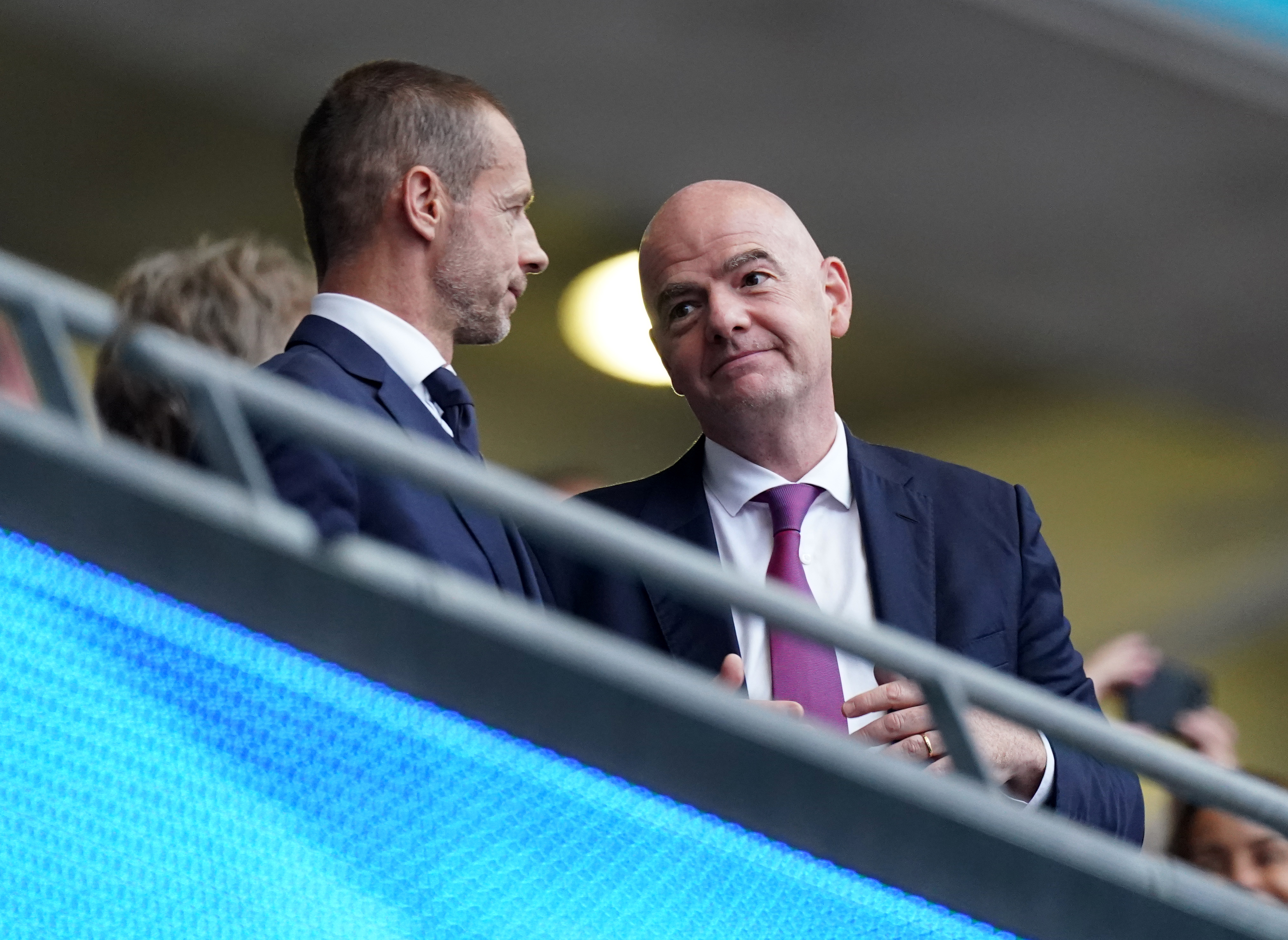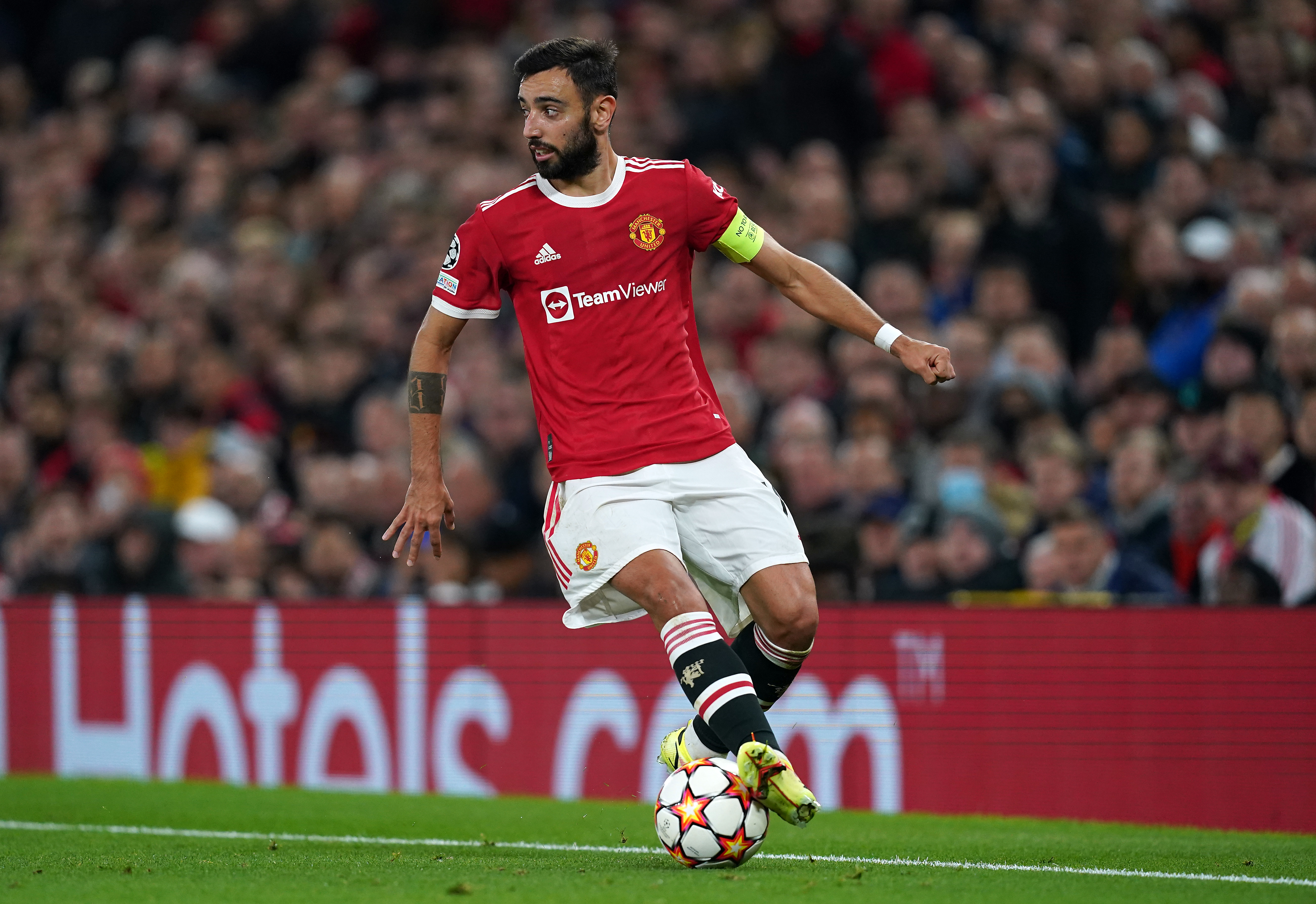FIFPRO wants football powers held to account over stated player welfare concerns

Football’s rival forces should expect to be held to account over their stated concern for player welfare, the head of world players’ union FIFPRO has warned.
European football’s governing body UEFA and the European Club Association have criticised FIFA’s international calendar plans, which include biennial World Cups and a major international tournament every summer. The risk to player health has been one of the reasons cited.
The same organisations have themselves been criticised – by the European Leagues group among others – over their support for an expanded Champions League from 2024-25 which would involve an extra 100 matches.
FIFA says its proposals to overhaul the men’s national team game protect player welfare. They include a reduction in the number of international breaks per season from five to one, or at most two, fewer qualifiers and a mandatory 25-day rest period at the end of each summer tournament.
FIFPRO general secretary Jonas Baer-Hoffmann says all those pronouncements make him “optimistic” that the new calendar starting in 2024 will represent a better deal for players.
“What I think is quite interesting…is that our arguments (on player welfare) are always brought to the table by the other stakeholders when somebody else makes a proposal,” he said.
“So when you need more Champions League games, then all of a sudden ‘the players are playing too much’, say the leagues.
Get FourFourTwo Newsletter
The best features, fun and footballing quizzes, straight to your inbox every week.
“If you want a second World Cup, ‘the players are playing too much’ says UEFA. Now at some point if you hold them accountable to this line of argument then you’re going to have to force them to hold it against themselves too.”
In the midst of heated debate over football’s future calendar, FIFPRO has released its annual report which shows top players are playing more minutes without sufficient rest in between than in previous seasons.
It wants players to be rested for one match after playing as few as three matches in the ‘critical zone’. It defines the ‘critical zone’ as two appearances of at least 45 minutes with less than five days in between. The union has also repeated its call for 28-day off-season breaks and 14-day in-season breaks to be mandated as part of football’s new calendar.

Baer-Hoffmann has been unimpressed by the level of debate around the new calendar so far, describing it as “very poor”.
“If football continues to get away with dealing with it the way that it has so far, then yes, probably the commercial argument would continue to trump the reason that we think is behind what we’re suggesting,” he said.
“I’m reasonably optimistic though that for the first time that’s not possible, because this calendar is running out.
“As of 2024 people will need a new calendar, and with how the stakeholder landscape has shaped up I think unilateral impositions which favour the club game or favour the international game or favour Europe over the other confederations are getting harder and harder to justify.
“We also have a change in terms of the fans having a much more informed opinion about a lot of these questions, which will also trigger different public discourse, so that’s where I draw my optimism for these negotiations.”
